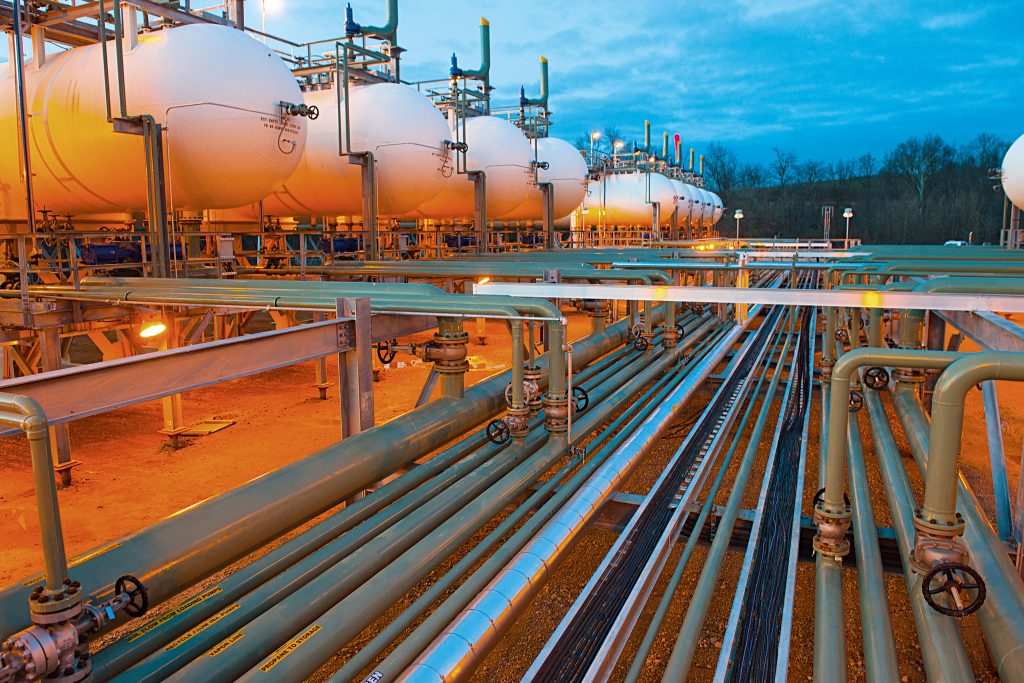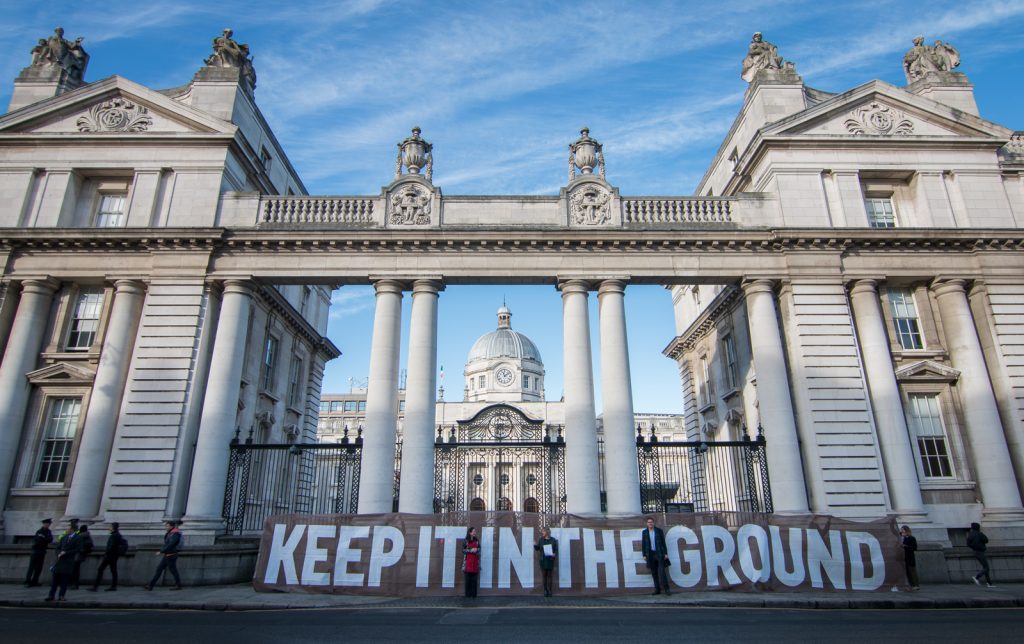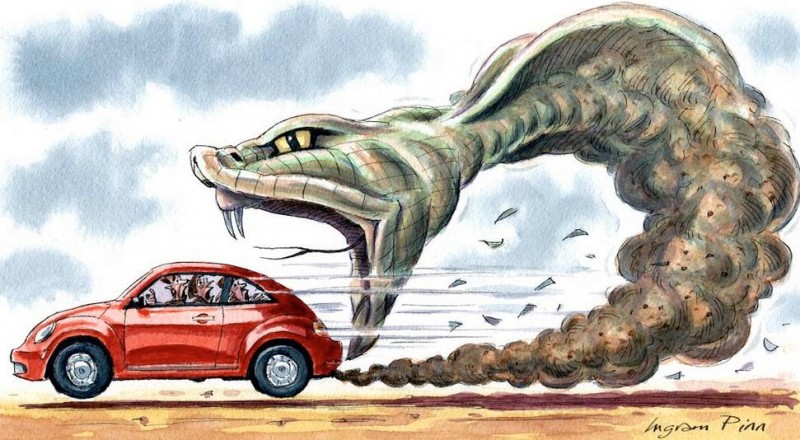‘Troubling endorsement’ of gas by climate council

September 25th, 2019
The issue of continued exploration for fossil fuels is a vexed one, both globally and nationally.
It is well established that, globally, already proven reserves of fossil fuels – coal, oil, natural gas, and peat – would, if directly combusted, guarantee a level of warming far in excess of the temperature goals of the 2015 Paris Agreement.
Such a scale of failure in climate mitigation would be catastrophic for human welfare, is likely inconsistent with organised global civilisation, and would, incidentally, devastate the entire existing biosphere of planet Earth.
Accordingly, common sense appears to dictate that searching for further additional fossil fuel resources to add to this “bubble” of unburnable carbon is at best pointless, and at worst, risks diverting international capital away from desperately needed investment in clean (zero- or negative-CO2) energy infrastructure.
Indeed, this was precisely the rationale for the Climate Emergency Measures Bill proposed by Bríd Smith TD and supported by all opposition parties and many civil society organisations.
The Bill sought to impose a moratorium on the issuance of new licences to explore for fossil fuels (primarily oil and natural gas) in the Irish offshore territory. Nonetheless, the Bill was trenchantly opposed and ultimately blocked by the Government.
Most recently, under continuing political and civil society pressure to reverse this position, the Government asked for the advice of Ireland’s independent Climate Change Advisory Council (CCAC) on this issue.
That advice has now been issued finding that while further exploration for oil would not be appropriate, “the continued exploration for, and recovery of new offshore natural gas reserves can be consistent with a low carbon transition.” This move is causing puzzlement of at least some of us engaged in detailed academic assessment of Irish climate policy.
While having considerable respect for the specific expertise of CCAC members, I have to respectfully disagree with both their premises and their conclusion on this occasion, and believe it is important to open this particular advice up to further informed peer scrutiny and critique.

‘Fundamentally incoherent’ reasoning
In its two-pager advice letter, the CCAC starts by noting that known reserves of either coal or oil alone would already be enough to exceed the remaining CO2 budget to keep within 1.5°C temperature rise. In contrast, natural gas alone, the CCAC concludes, would not.
On this specific basis, it is then supposed that continued natural gas exploration can be warranted. But this can only make even basic arithmetic sense if one assumes no further combustion of coal and oil so that the entire remaining CO2 budget becomes available for natural gas combustion. As that is manifestly not the case – neither globally nor nationally – this line of reasoning appears fundamentally incoherent.
The advice note goes on to state that “research presented to the Joint Oireachtas Committee [on Climate Action] indicates that if we are to decarbonise the Irish economy by 2050 there will be a need for significant deployment of CCS [carbon capture and storage] with natural gas as a component of Ireland’s energy system”.
Without further context or qualification, this is troubling on multiple grounds. Firstly, it seems incredible that the CCAC could still, in late 2019, be implying that “decarbonisation by 2050” represents an adequate or just climate mitigation response for wealthy, high per-capita emissions states. It simply doesn’t.
While such a claim is often loosely expressed, it relies on the trope that if the “world” achieves by 2050 net-zero greenhouse gas emissions – a “balance” of emissions and removals through carbon sinks like peatlands – then we might (a roughly 66 per cent chance) still limit global temperature increase to 2°C.
This clearly falls short of the 1.5C ambition. But more importantly, rich, industrialised states such as Ireland are committed under the Paris Agreement to “lead” on climate action and decarbonise significantly faster than the “global average”. This essentially implies that we must reach net-zero emissions much sooner than 2050.
In effect, it appears that the CCAC has strayed into embedding a tacit, and ultimately repugnant, political premise (namely, a globally unjust transition) as a basis for its supposedly purely scientific advice.

Carbon capture pipedream
The advice note states that a hypothetical but presumed future use of natural gas combined with carbon capture and storage technology (CCS) “reflects the intermittent nature of renewable sources of electricity and the absence, to date, of a suitable alternative backup technology”.
Yet the note then immediately acknowledges that to date the development and deployment of CCS “has been limited”. Meanwhile, the council says, “alternative energy storage systems, such as battery storage and synthetic gas production, have advanced rapidly”.
This presents a peculiar juxtaposition where one immature technology – natural gas with CCS that has “limited” development and deployment and will still release significant residual net-positive CO2 emissions and requires access to indefinitely large geological CO2 storage facilities – is preferred over others such as electrofuel based energy storage systems that are already “advanced rapidly”.
It is, to say the least, difficult to see how any forceful conclusions could be extracted from such equivocal foundations.
The CCAC note does at least acknowledge that overall national energy security should be an important policy consideration in this discussion. It then, however, fails to compare a natural gas pathway – which is necessarily contingent on an essentially speculative gamble on future resource discoveries – with a pathway that can be followed with confidence based on already known and identified indigenous energy resources.
And then there is the very tangible problem that the CCAC’s almost theological attempt to separate oil and gas exploration fails to grasp the practical offshore reality that both activities are inextricably linked.

Delaying the fossil-free transition
The CCAC note also appears to seek to immunise its advice for continued natural gas exploration from immediate critique by adding that this should be “kept under review”.
Such apparent policy procrastination is not somehow devoid of consequences, however, as it risks additional asset stranding and diversion of capital from the desperately needed transition to non-fossil energy.
It is unclear from the CCAC note what further underlying analysis informed its conclusion, but given the importance of the issue and the level of social and political weight attached to it, one assumes that there exists significant additional background material.
It would be very helpful for the CCAC to release this detailed analysis as soon as possible and to engage constructively with all stakeholders and the wider national and international academic research community.
Finally, and in fairness to the CCAC who have been operating with very constrained resources, the final report of the Joint Oireachtas Committee on Climate Action already specifically recognised the need to enhance the Council’s “powers, functions, and resources”.
It will be very helpful if this includes significant improvement in the diversity of expertise represented on the Council itself and active provision for open peer review of future draft findings, analysis or advice.
By Professor Barry McMullin
Prof McMullin is a lecturer in the Faculty of Engineering and Computing in Dublin City University and is also member of An Taisce’s climate committee







